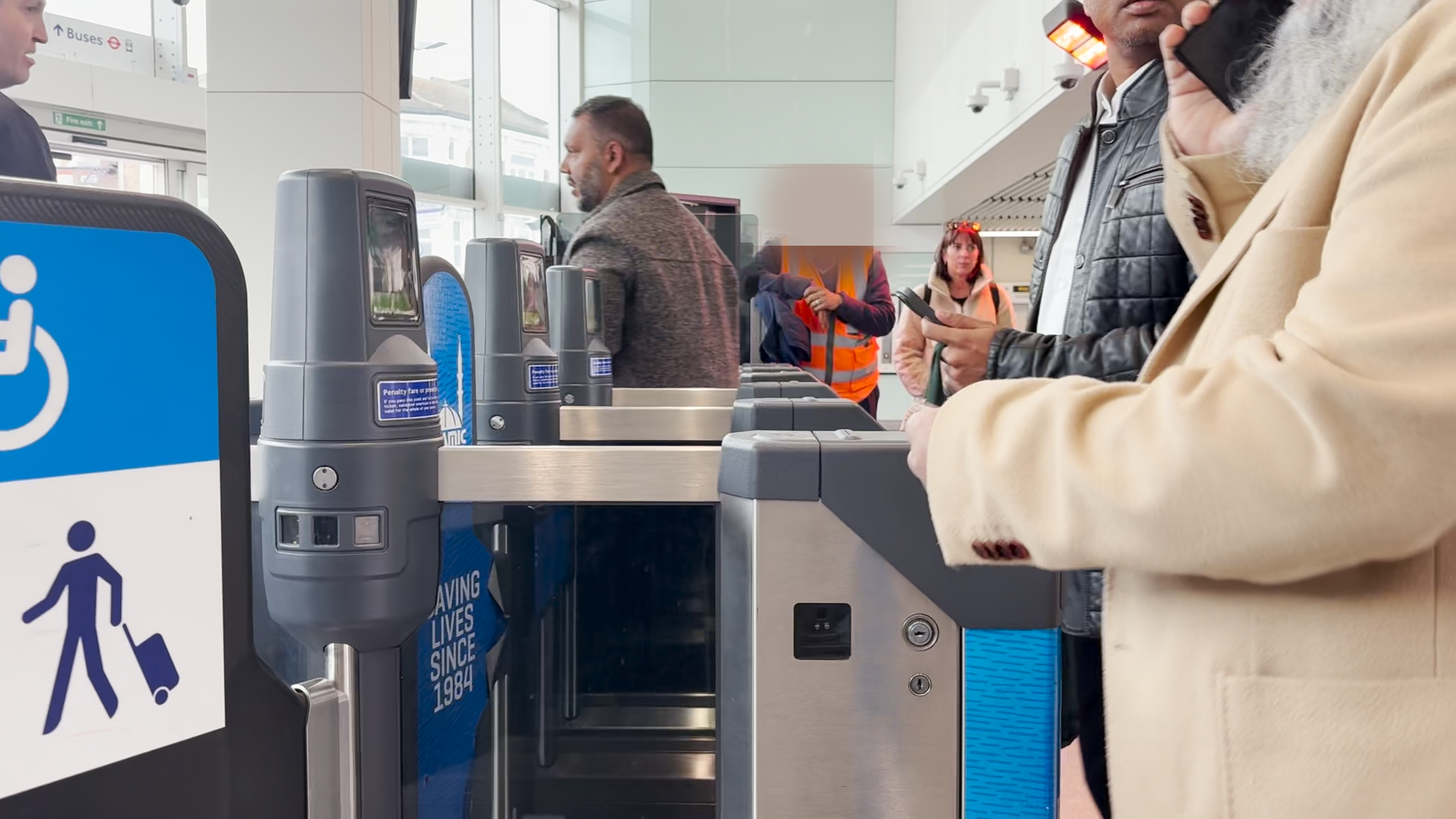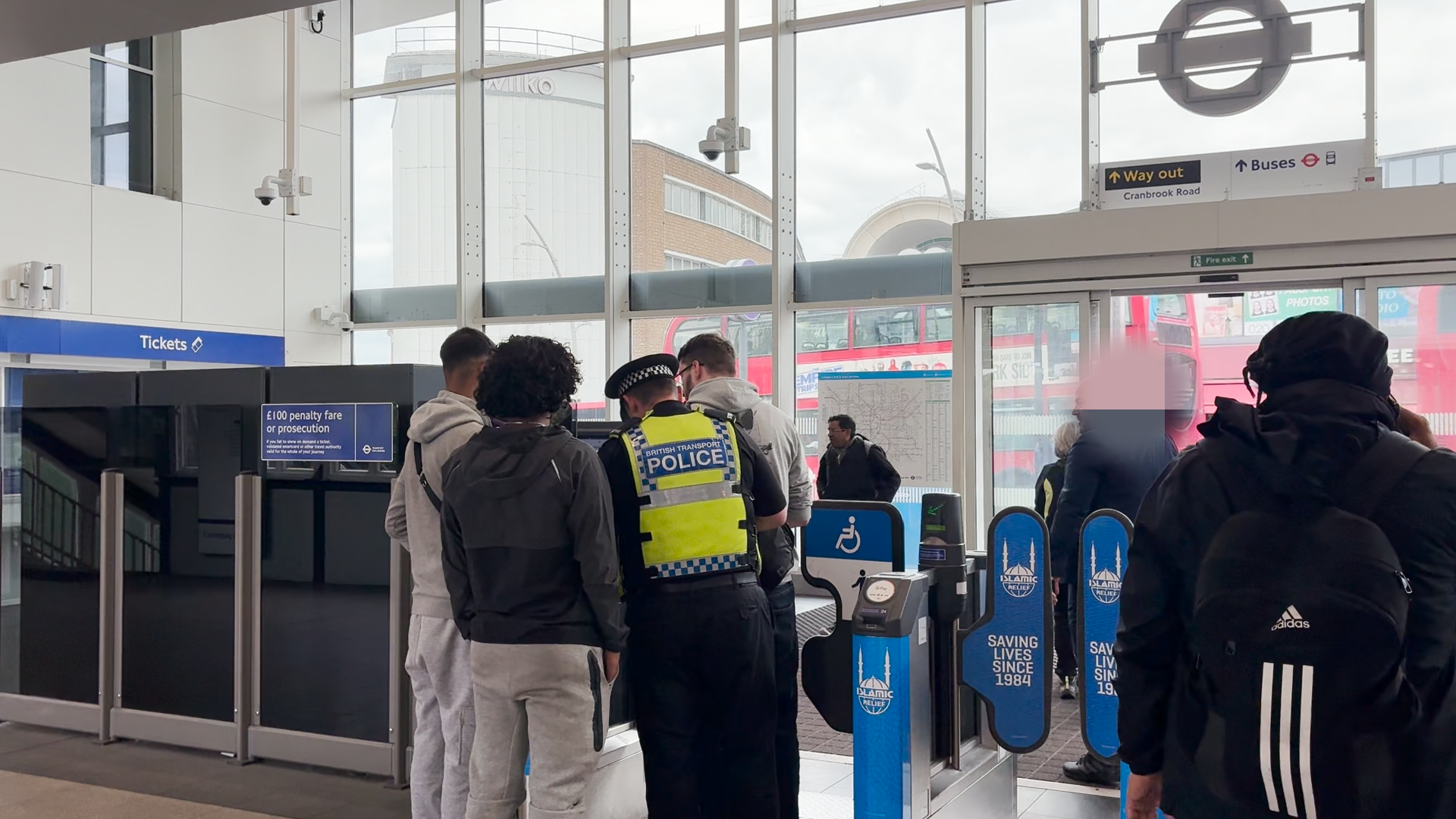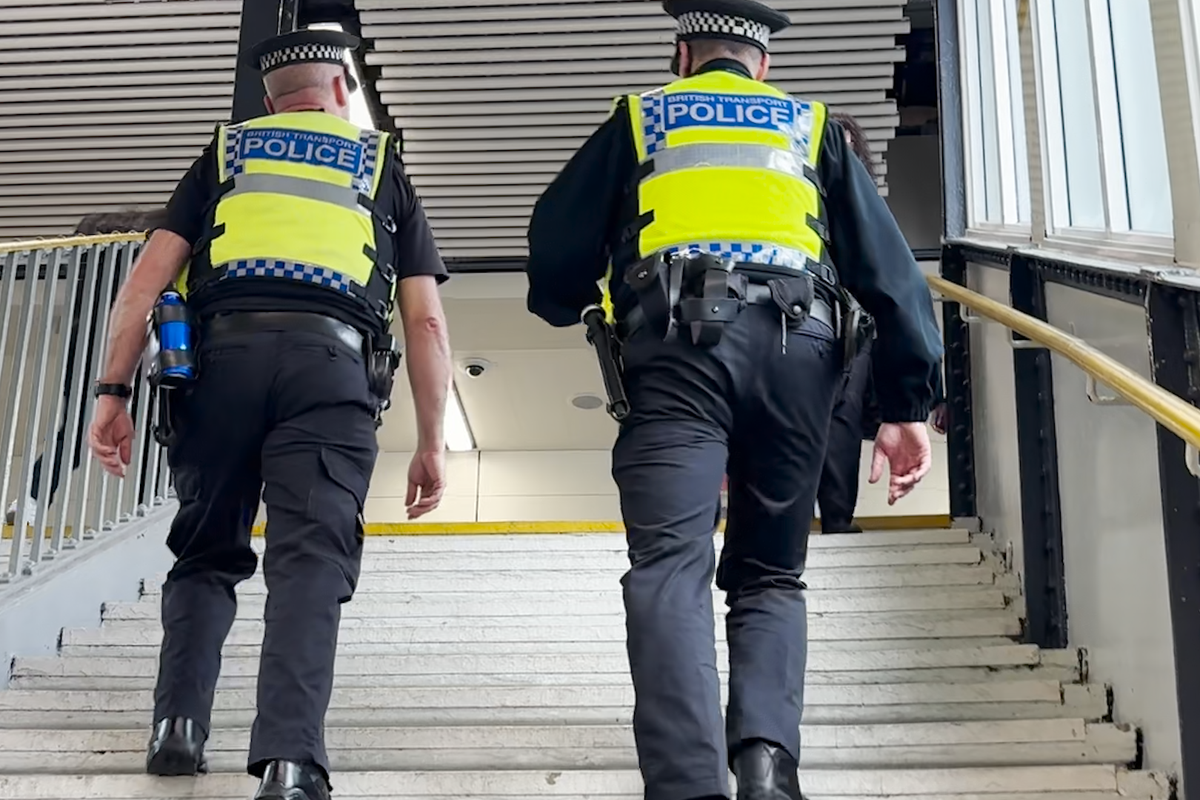In a desperate attempt to avoid the uniformed police guarding the exit to the tube station, a young man without a ticket sprints back down the platform steps.
But before he can jump back onto the train, officers circle him and have him restrained against a wall within minutes.
A search of his bag reveals he is carrying a lockable knife, and he is swiftly arrested on suspicion of possessing an offensive weapon and put in handcuffs.
The weapon is placed in an evidence bag, and he is marched through the station and into a waiting police car to be charged and remanded to appear at court the next day.
The knife looks small, but officers insist it could do serious damage, and they stress they do not know the man’s intentions for travelling with the weapon.
It is just one example of more than 480 instances where people carrying a bladed article, such as a knife, have been stopped by British Transport Police (BTP) in the past year.

The Independent witnessed several fare-dodging incidents while out on an operation with BTP from Stratford station in east London to Ilford on the Elizabeth line, as part of their crackdown on offenders.
The latest figures show almost one in 20 Tube passengers are dodging fares – at a cost of £130m – amid a surge in violence against the staff who try to stop them.
Ilford is one of many stations in the capital that has witnessed violence towards staff, with workers telling how they have been hit, spat at and subjected to racial abuse – all in the line of work.
This particular station was chosen for the operation because in December 2024, a railway worker died after sustaining a serious head injury after being assaulted.
Attacks on Transport for London (TfL) staff are not uncommon. More than 10,490 reports of work-related violence and aggression were made by TfL workers in 2023/24 – a 5 per cent increase on the previous year.
About half of these incidents came after they approached fare evaders.

“Frontline staff deal with members of the public on a regular basis, and we know that they do face a disproportionate level on occasions of verbal abuse, and at its worst, that can escalate to physical violence,” Superintendent John Loveless from BTP tells The Independent.
“There’s always a sense of fear or concern that you just don’t know who you’re dealing with, what they’ve got on their persons, whether that be a knife or something else, or just how they’re going to behave and react to you,” he adds.
The busy transport hub of Stratford – the fifth busiest station in the UK in 2023/24 – has a huge footfall and before officers even start their operation, they rush off to deal with drunk and disorderly passengers and several instances of anti-social behaviour.
As we interview a worker, a group of teenagers are causing disruption by running around and vaping on the platform. When they refuse to cooperate with police, one is physically restrained, pinned to concrete floor of the platform and can be heard yelling as police speak to them.
As we move onto the platform, a man guzzling a beer as he carries bag full of more alcohol is stopped for carrying an open container of alcohol – but he escapes a fine.

Fare dodging is described as a “gateway level offence” by officers on the operation, who say that while not all fare evaders are criminals, most criminals will avoid paying.
Within 20 minutes of getting off the Elizabeth line train to Ilford, police stop the young man with a knife.
Soon after another man approaching the barrier sees police and confesses he does not have his Oyster card with him. He is taken to one side, questioned and handed a £100 fine – the standard rate under TfL rules, which can be reduced if paid within 21 days.
Another man who tries to exit the barrier is fined on the spot for using a child’s travel card.
A group of five women travelling with children in buggies attempt to circle back down the steps onto the platform when they realise police are lining the exit.

Their suspicious behaviour is clocked by plain-clothed police officers who stop them for questions. The women, who spoke Romanian, could not speak English fluently, and a member of the station staff steps in to translate. It is soon revealed that they do not have any way to pay for their tickets and they are fined.
During the operation, officers issue 47 penalty fares of £100 and conduct seven stop and searches – finding the lock knife and two people in possession of cannabis.
Superintendent Loveless says: “London does have its challenges in terms of weapon-enabled crime, but whilst there might still be that sense of fear and concern do be reassured that it’s a really still safe way to travel.”
“We like to use the phrase that ‘whilst you may not always see us, it doesn’t mean that police are not always there.
“Talking to the knife carriers out there, the risk of you becoming a victim yourself if you are choosing to carry a knife is high. You put yourself and others at significant risk, and ultimately it can result in a life-changing injury or death.”
More than 55,000 knife crime offences were recorded in England and Wales in the year to September 2024, according to the Office for National Statistics.
British Transport Police recorded the biggest percentage increase of knife crime offences logged out of all UK forces last year, increasing 33.6 per cent.




